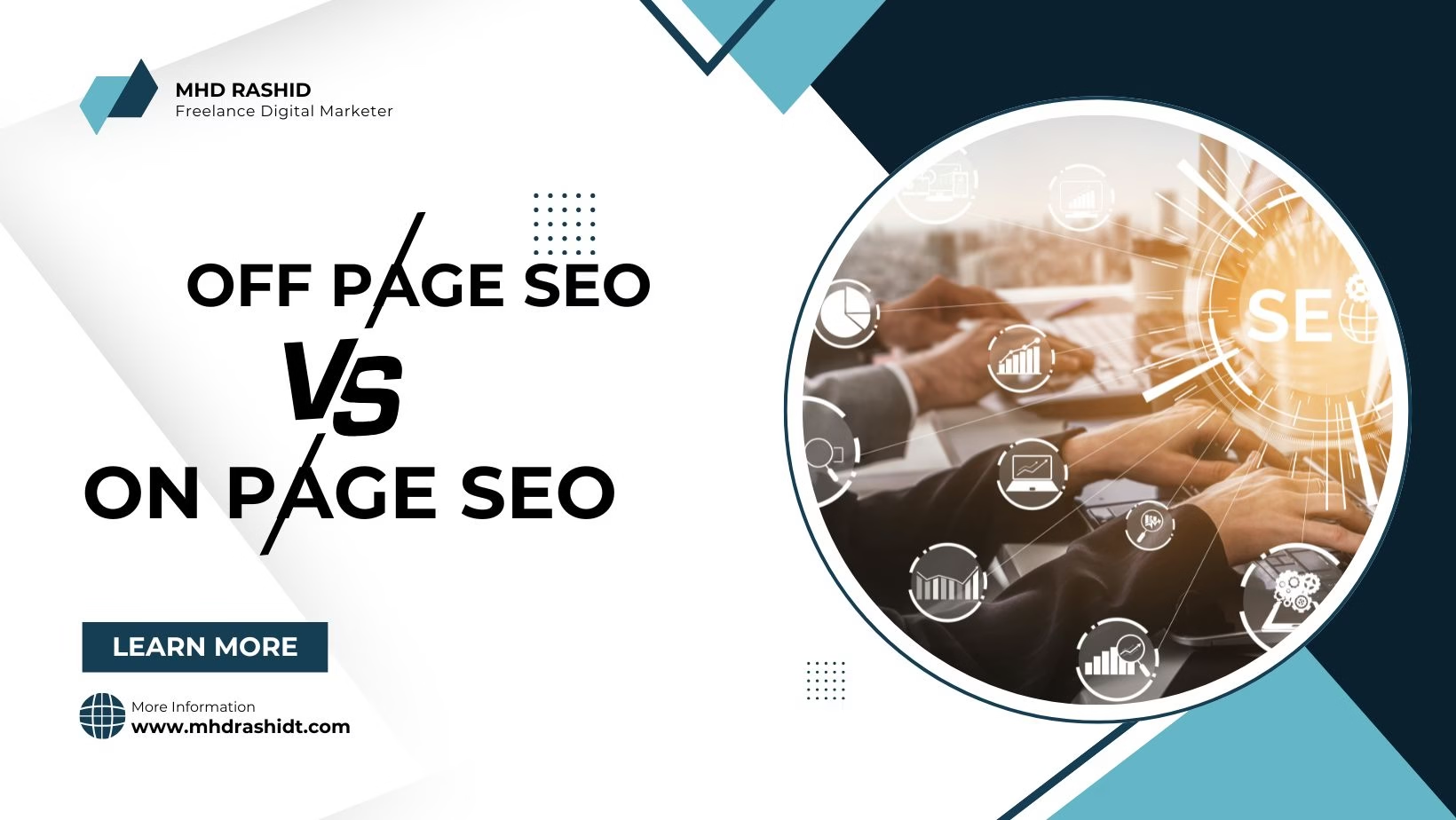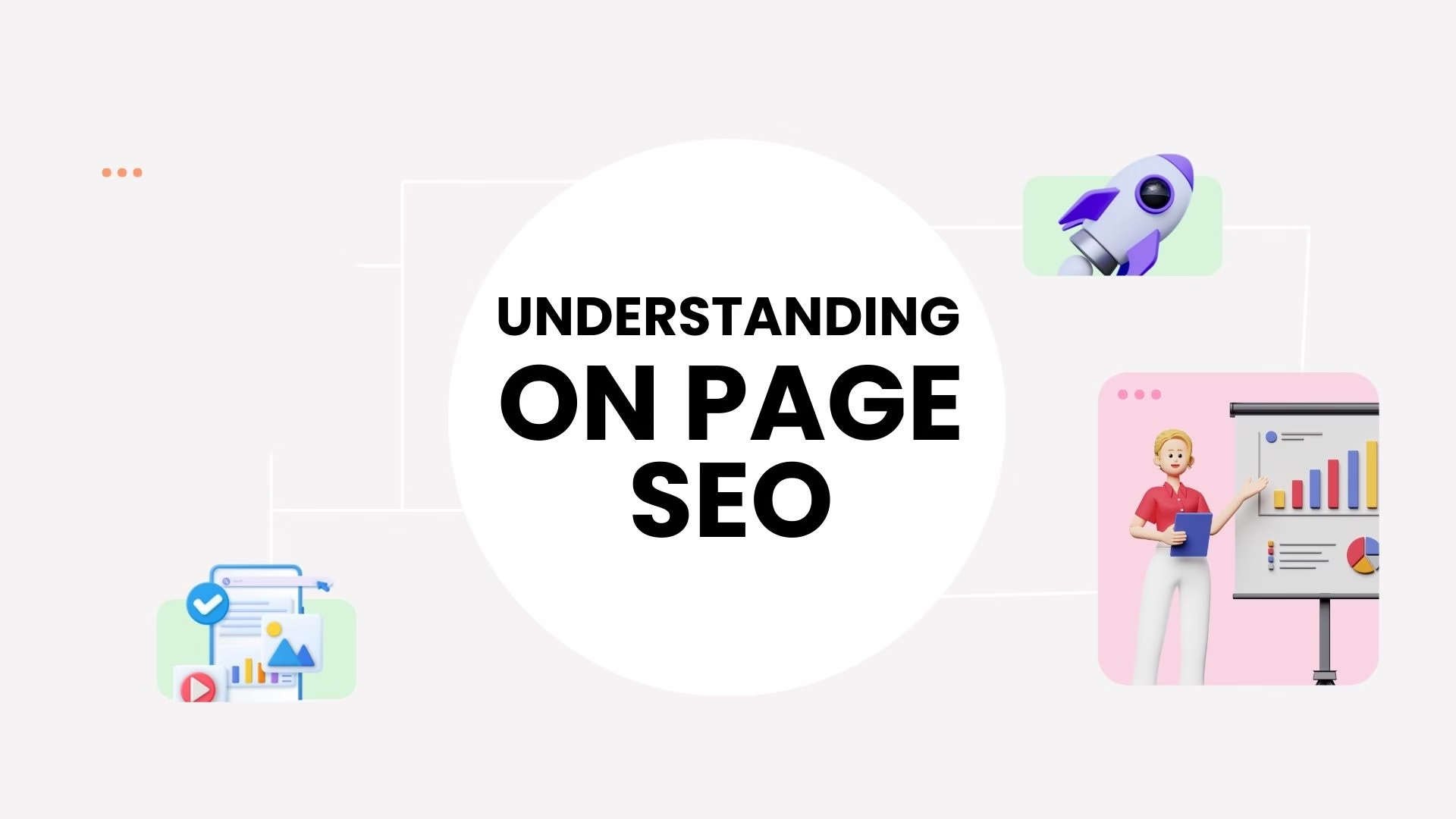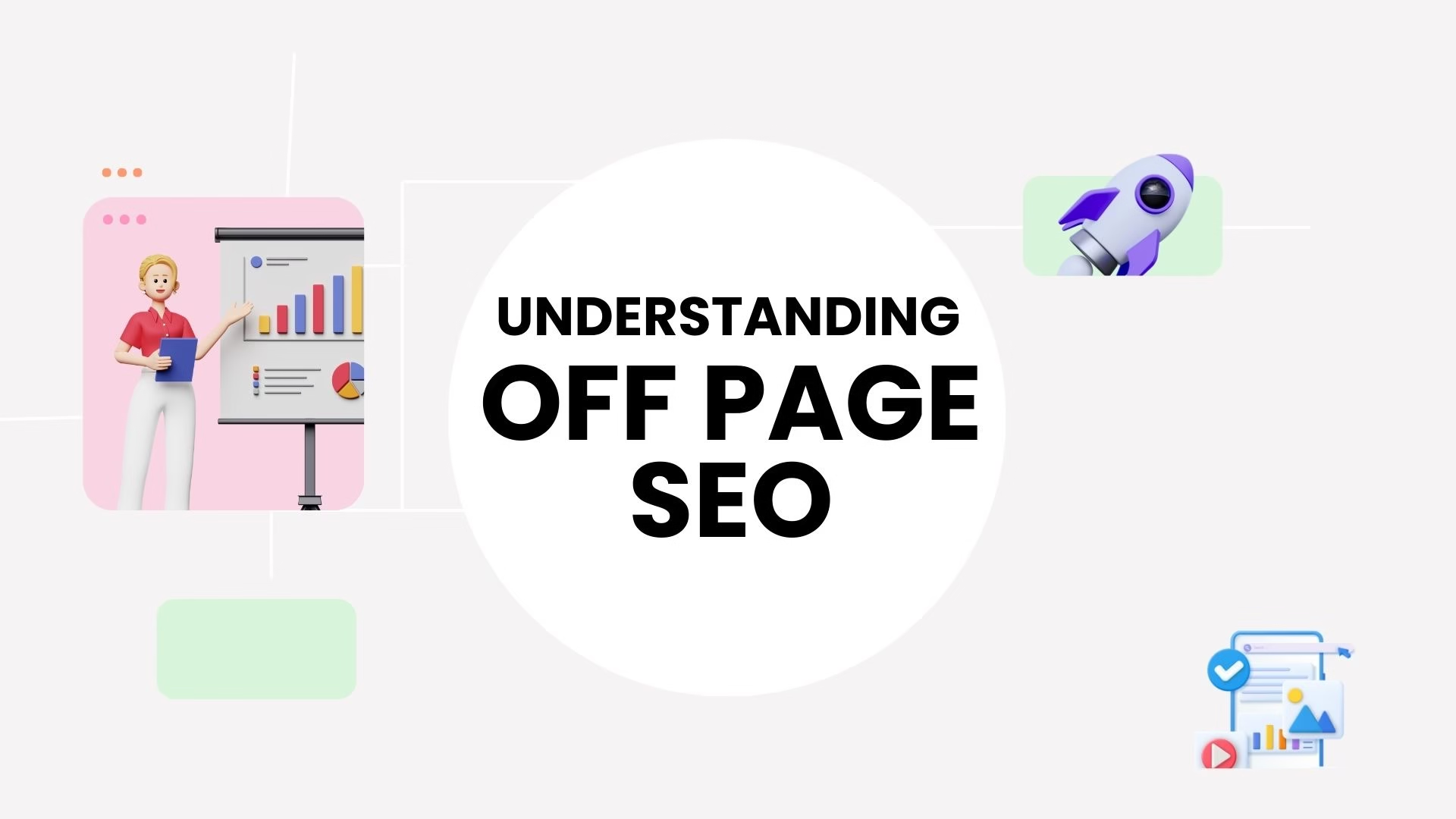
SEO forms the foundation of every successful digital marketing strategy. If you want your website to appear in Google search results, you can’t ignore SEO. But here’s the catch – SEO isn’t just about putting keywords in your content. It’s a combination of multiple strategies that work both inside your website and outside of it. This is where the debate of off page SEO vs on page SEO comes into play.
Many beginners often get confused between these two terms. To put it simply, on page SEO focuses on what you do inside your website – such as optimizing titles, headings, images, and content. On the other hand, off page SEO focuses on what happens outside your website – like building backlinks, social signals, and online reputation.
Think of your website as a shop. On page SEO works like decorating the inside of your store so that everything looks neat and easy to find. Off page SEO is how people talk about your shop outside, how often they recommend it, and how popular it becomes. Both are equally important if you want to rank higher on Google.
As a freelance digital marketer in Malappuram, I, MHD RASHID, have helped many businesses grow online by using a balanced mix of on page and off page SEO. In today’s guide, we’ll break down these two strategies in simple words so even a beginner can understand. Whether you are a business owner, a student, or someone curious about digital marketing, this article will give you clarity on off page SEO vs on page SEO and how both can work together to improve your online presence.
Off Page SEO vs On Page SEO: Key Differences
When we talk about SEO, it’s important to understand the distinction. Let’s break down the basics:
- On Page SEO: All activities done directly on your website. Examples: keyword optimization, page speed, mobile friendliness, headings, and internal linking.
- Off Page SEO: All activities done outside your website. Examples: link building, social media marketing, guest posting, influencer outreach.
The real question is not whether one is better than the other. Instead, it’s about how you can combine them to create a strong SEO strategy.
Understanding On Page SEO ; Off Page SEO vs On Page SEO
On page SEO can be compared to building a strong base for your home. If the base isn’t solid, no amount of paint, furniture, or decoration will keep the house standing. The same goes for websites—without proper on page optimization, your online presence won’t hold up in the long run.
Google carefully looks at on page signals to figure out what your site is about and whether it provides real value to visitors. The clearer and better organized your website is, the easier it is for search engines to recommend it to users.
Some of the most important on page SEO elements include:
- Keyword Usage – Placing the right keywords in your titles, meta descriptions, and content helps search engines match your site to user searches. For instance, if you want to reach people looking for a digital marketer in Kerala, the phrase should appear naturally in headings and body text—without stuffing.
- High-Quality Content – Search engines reward content that is unique, easy to read, and genuinely useful.
- Page Speed and Mobile Optimization – A site that loads fast and works well on mobile devices keeps visitors engaged.
- Internal Linking – Linking your own pages together makes navigation simple and strengthens SEO.
By focusing on these, you create a stable structure for your website—one that’s ready to rank higher and bring in consistent traffic.
Understanding Off Page SEO ; Off Page SEO vs On Page SEO
Now, let’s look at the other side – off page SEO. Imagine you’ve built a great website with excellent content. But if no one knows about it, will it get traffic? That’s where off page SEO helps.
Off page SEO builds your website’s authority and reputation across the internet. It’s like word-of-mouth marketing but in the digital space.
Some important off page SEO strategies include:
- Backlink Building – Getting links from other trusted websites.
- Social Media Engagement – Sharing content on platforms like Facebook, Instagram, and LinkedIn can drive traffic.
- Guest Blogging – Writing articles for other websites to get backlinks and exposure.
- Influencer Marketing – Collaborating with industry influencers to build credibility.
- Online Reviews and Citations – Reviews on Google My Business or other platforms boost your local SEO.
For example, as a freelance digital marketer in Malappuram, I often use guest posting and backlink strategies to help businesses get recognized outside their own websites.
Why Both Off Page SEO vs On Page SEO Matter
A common mistake many beginners make is focusing too much on one side of SEO while completely ignoring the other. Some people put all their energy into creating content, optimizing titles, and adding keywords but forget about building backlinks or promoting their website. On the other hand, some chase backlinks and social media shares but never fix their slow website speed, poor content, or weak structure.
The truth is simple: on page SEO prepares your website for search engines, while off page SEO builds its popularity and trust. Without a strong on page setup, your site won’t be properly understood by search engines. And without off page efforts, your site won’t be recognized as valuable compared to competitors.
Think of on page SEO as studying hard before an exam. You prepare your notes, understand the concepts, and make sure everything is clear. That’s your website being well-structured and optimized. If on page SEO is studying for the exam, off page SEO is when others vouch for your skills and recommend you. If your name is trusted and recommended, people believe in your ability. Together, both give you higher chances of success.
If you only rely on on page SEO, it’s like being a brilliant student no one knows about—you remain hidden. If you focus only on off page SEO, it’s like being popular without enough knowledge—your reputation won’t last. But when you combine both, you become a complete package: well-prepared and well-recognized.
That’s why every digital marketer in Kerala, including professionals like MHD RASHID, emphasizes a balance. On page SEO gives you a strong foundation, and off page SEO amplifies your reach. Together, they create long-term success in the digital world.
How MHD RASHID Uses Off Page SEO vs On Page SEO
Being a digital marketer in Kerala, I, MHD RASHID, have seen businesses struggle because they ignored one side of SEO. Here’s how I approach it:
- First, I perform a website audit to fix all on page SEO issues – keywords, titles, speed, mobile friendliness.
- The next step is creating an off page SEO plan that highlights link-building, social media presence, and strengthening brand visibility.
- I combine both strategies to ensure businesses get long-term growth, not just short-term traffic.
This balanced approach is what separates average results from excellent results.
Practical Examples of Off Page SEO vs On Page SEO
To make the idea of off page SEO vs on page SEO easier to understand, let’s take a practical example of a bakery in Malappuram. Imagine this bakery wants more customers to find them online and order cakes. Both on page and off page SEO can play a big role in making that happen.
On Page SEO Example: The bakery starts by adding keywords like “best bakery in Malappuram” in its website titles and blog posts. This tells Google what the website is about and helps it show up when people search for bakeries nearby.
They also write detailed blog posts about cakes, bread, and special desserts. By doing this, they provide useful content for visitors and give Google more reasons to recommend their site.
Another step is image optimization. The bakery uploads pictures of cakes but makes sure they load fast and have alt text like “chocolate cake in Malappuram.” This not only improves speed but also helps with ranking in Google image search.
Now, let’s look at Off Page SEO Example: The same bakery decides to collaborate with a popular food blogger. The blogger writes an article about the bakery and links to their website. This backlink acts like a vote of trust, making Google believe the bakery is reliable.
The bakery also shares photos of fresh cakes on Instagram and Facebook. When people engage with these posts, it builds social signals that further improve visibility.
Finally, the bakery encourages happy customers to leave positive reviews on Google. These reviews increase trust and improve local SEO rankings.
So, the difference is clear. On page SEO makes the bakery’s website attractive and search-friendly. Off page SEO spreads the word, builds reputation, and brings more people to discover the bakery. Both are essential for success.
Conclusion ; Off Page SEO vs On Page SEO
When it comes to off page SEO vs on page SEO, the answer is not about choosing one over the other. It’s about balance. On page SEO sets the stage, making sure your website is optimized and search-engine friendly. Off page SEO then builds authority, trust, and popularity around your website.
If you focus only on one, you’ll miss out on the complete benefits of SEO. Imagine having a perfectly designed shop (on page) but no one knows it exists. Or, imagine everyone talking about your shop (off page) but the shop is messy and unattractive. Neither works alone.
As a freelance digital marketer in Malappuram, I, MHD RASHID, strongly believe in combining both strategies. Businesses in Kerala that embrace this balance have seen long-term growth, improved visibility, and higher customer trust.
If you’re just stepping into digital marketing, avoid wasting time choosing sides in the debate of off page SEO vs on page SEO. Start by strengthening your website with solid on page practices, then grow your visibility through off page strategies. When these two work together, your business stands out and gains a real advantage in today’s competitive online space.
SEE MY PORTFOLIO ; click here
MORE BLOGS ; visit here



Can you be more specific about the content of your article? After reading it, I still have some doubts. Hope you can help me.